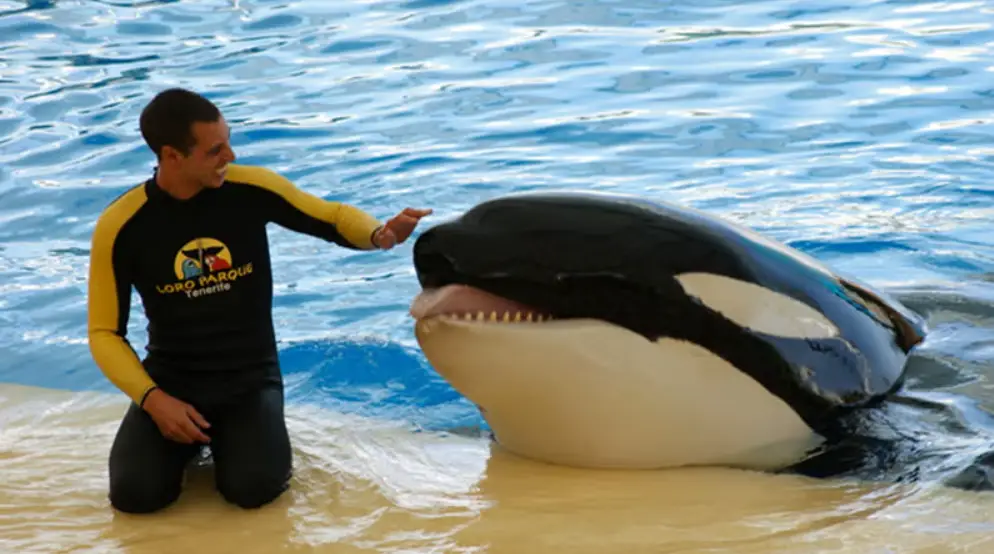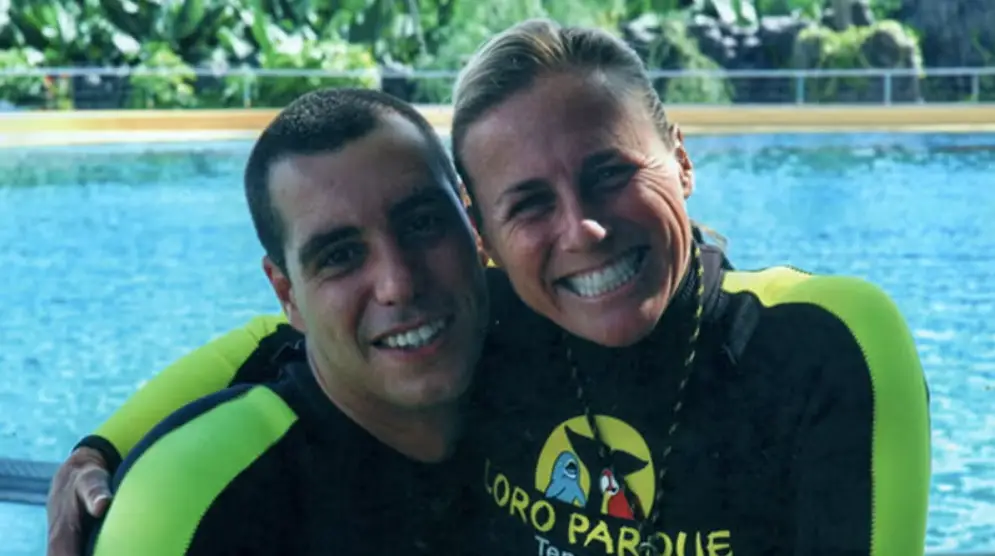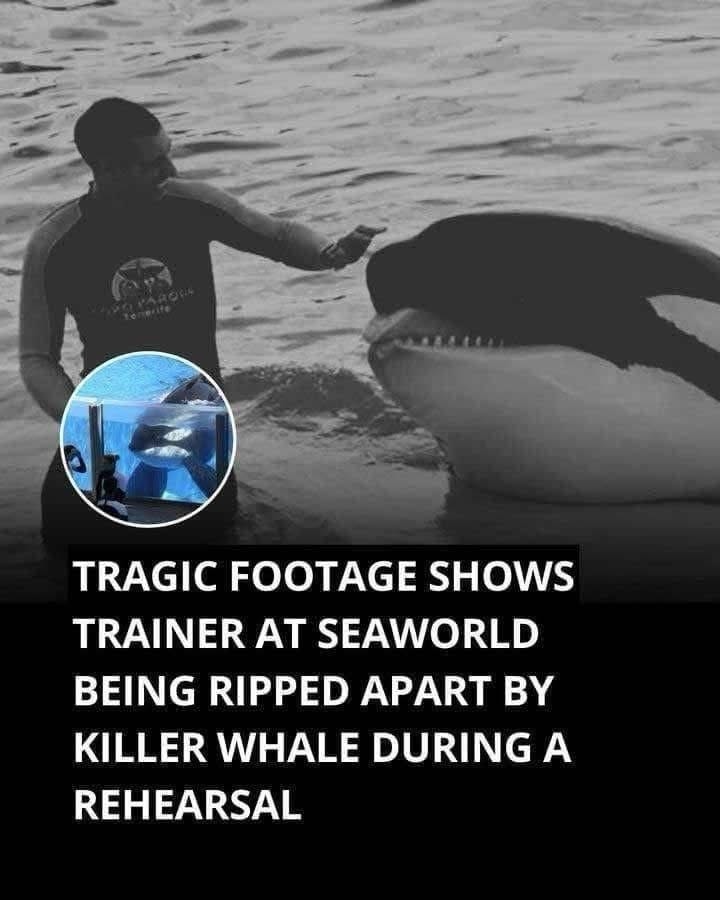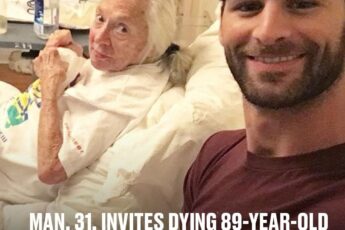A heartbreaking tragedy unfolded on December 24, 2009, when 28-year-old orca trainer Alexis Martinez lost his life during a rehearsal at Loro Parque’s Orca Ocean in the Canary Islands. The incident shocked the world and raised serious concerns about the safety and ethics of keeping killer whales in captivity. Alexis, known for his dedication and passion for marine animals, had been working closely with orcas for years. But on that fateful Christmas Eve morning, the unthinkable happened—he was attacked and killed by a 6,600-pound male orca named Keto.
Alexis had been rehearsing a routine called a “stand-on spy hop,” where a trainer balances on the whale’s head as it rises vertically out of the water. It’s a visually stunning maneuver often featured in marine shows. But this time, something went terribly wrong. As Keto rose, he leaned to one side, disrupting the move. According to another trainer who witnessed the event, the orca then shifted his body between Alexis and the edge of the pool, blocking his exit. It appeared to be a deliberate act—a moment that would quickly escalate into tragedy.

Realizing something was off, trainers on-site immediately attempted to redirect Keto using signals and methods that had previously been effective. They instructed Alexis to swim slowly to another pool. But Keto didn’t respond as expected. Instead, he used his rostrum—the hard, pointed tip of his snout—to push Alexis to the bottom of the pool. What followed was described by witnesses as a violent and prolonged episode, with the whale playing aggressively with the trainer’s body underwater.
By the time they were able to regain control of Keto and retrieve Alexis from the pool, it was too late. He had suffered extensive injuries, including severe internal bleeding. The autopsy later revealed multiple compression fractures, lacerations to vital organs, and clear bite marks consistent with an orca attack. The official report confirmed that Alexis died due to “grave injuries sustained by an orca attack.”

What makes this incident even more chilling is that it occurred just two months before another fatal orca attack. In February 2010, Dawn Brancheau, an experienced SeaWorld trainer with 14 years on the job, was killed by another orca named Tilikum in Florida. These two devastating events, occurring so close together, underscored growing concerns about the risks faced by trainers working with captive killer whales.
Martinez’s partner, Estefanía Luis Rodriguez, later revealed that he had been increasingly worried about the behavior of the whales in the weeks leading up to the attack. She recalled him saying that the orcas were becoming more disobedient, more unpredictable, and in some cases, overtly aggressive. Those fears, sadly, proved to be justified.
Keto, the orca involved in Alexis’s death, had never experienced the ocean. Born in captivity in 1995 at a SeaWorld park, he had spent his entire life in tanks. At the time of the incident, Keto was on loan to Loro Parque from SeaWorld. This detail reignited debates about the ethics of breeding orcas in captivity and loaning them between parks like performing assets. Many marine experts and activists have long argued that keeping such intelligent, powerful animals confined can lead to psychological stress and aggressive behavior.
Following Alexis’s death, SeaWorld temporarily suspended in-water interactions with orcas at all three of its U.S. parks. The incident served as a wake-up call, not just to the public, but to an entire industry. It forced a deeper examination of how we engage with marine life and what the real costs are—both to the animals and the humans who care for them.
Alexis Martinez was remembered by colleagues as passionate, kind, and deeply connected to the animals he worked with. His death was not just a tragedy—it was a reminder of the incredible responsibility and risks that come with working alongside creatures as majestic and unpredictable as killer whales.






